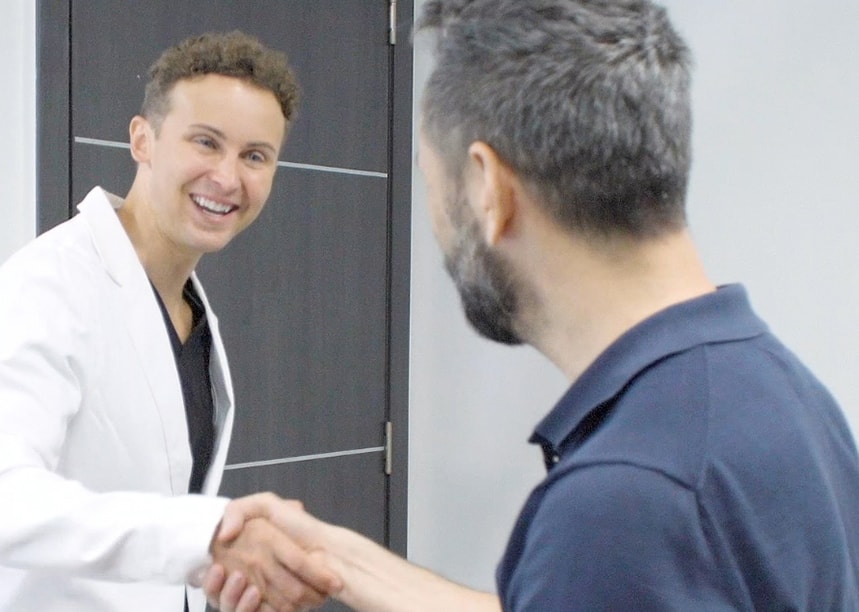5 Back Conditions Women Are More Exposed to Than Men
September 13, 2021
Renowned Sciatica Pain Doctor in West Orange Explains
Back pain will affect at least 80% of us at some point in our lives. Nonetheless, there seem to be a few back-related issues that women are more likely to experience, eventually leading to persistent back pain. One example is cervical degenerative disk degeneration, which is 1.38 times more common in women than in men. Some diseases, such as endometriosis, are only experienced by women and are known to induce significant low back pain attributed to hormonal factors.
Many of these issues do not go away on their own and need adequate pain treatment that only a specialist can provide. Treatment methods will range from minimally invasive treatments to physical therapy, pharmaceuticals, and, in rare circumstances, surgery.
As you know, back pain is never a good sign. Without proper pain management, what seems like mild discomfort can evolve into chronic pain, which could disrupt your life for a very long time. This is why you should start to understand the type of conditions you are more exposed to and take precautionary measures so that pain does not become an inconvenience.
For this reason, we asked Dr George Hanna – a board-certified sciatica pain doctor in West Orange, to talk to us about the type of back conditions women are more at risk of developing. Below are his answers!
Spinal Osteoarthritis
Spinal osteoarthritis is a condition much more common in women than in men. It is also referred to as wear and tear arthritis, as it occurs with age, due to wear and tear of the facet joints. More specifically, the fibrous cartilage of the joints wears off, causing the vertebrae to make contact and ultimately rub together. This leads to significant discomfort, as there is nothing between the bones to prevent friction. Apart from age, weight gaining is also a common risk factor for developing spinal osteoarthritis.

But how can you tell if the discomfort you are experiencing is caused by spinal osteoarthritis? Dr George Hanna recommends looking out for the following symptoms:
- Low back pain, as well as in the groin, buttocks, and thighs
- Upper back pain
- Morning back stiffness and pain
- Short episodes of severe back pain
- Pain that becomes worse when pressure is put on the area
Spinal Osteoporosis
Osteoporosis develops once the thickness of the bone decreases, making your bone structure weak and prone to injury. Even a mild trip and fall can cause significant issues to someone suffering from osteoporosis. Osteoporosis occurs once bone development becomes slower than bone loss. After menopause, women are four times more exposed to spinal osteoporosis than men. This is believed to happen most likely because women go through severe estrogen insufficiency during that period.
Osteoporosis can result in bone pain, although it is most commonly linked to spinal fractures due to compression, which results in severe back pain. If the intensity of this condition grows, it could become a genuine medical emergency.
Sacroiliac Joint Dysfunction
The sacroiliac joint (SI joint) is the one that links the bottom of the spine to the pelvis. If the pain comes from the SI joint, it is usually due to sacroiliac joint dysfunction, which also happens to be one of the most common reasons people deal with pain in the lower back.
There are many reasons why women are more likely to experience SI joint dysfunction than men, one of them being that woman’s SI joint is smaller than the one of a man, which makes the stress concentration higher. Another aspect associated with SI joint problems in women is the fact that the sacrum tends to be bent backwards, less curved, and broader in women than in men.
Women who experience SI joint dysfunction report the following symptoms:
- Low back pain
- A faded pain in the buttock area, which can sometimes grow in intensity
- Pain shooting down the thigh, similar to a stabbing sensation
Degenerative spondylolisthesis
As we age, disc degeneration can cause a vertebra in the spine to slide over the one below it; a condition known as degenerative spondylolisthesis. Because postmenopausal women have lower levels of estrogen, this degenerative disorder is more likely to bother them.
How is disc degeneration connected to estrogen levels? The spinal discs deteriorate quicker when estrogen levels have dropped, and the ligaments that hold the vertebrae together weaken, resulting in spinal dysfunction. In addition, postmenopausal women are more likely to have associated spine osteoarthritis, which raises the risk of vertebral displacement.
Piriformis syndrome
Piriformis syndrome is discomfort produced by contractions in your piriformis muscle, which is a big muscle located in the buttock. Women are more susceptible to piriformis syndrome than men due to hormonal and pregnancy-related modifications to the pelvic area.
When this happens, the piriformis muscle can compress the sciatic nerve and cause inflammation and pain very similar to sciatica pain. This is why some women confuse piriformis syndrome with sciatica during pregnancy.
If you suspect you may be dealing with piriformis syndrome, look for symptoms such as:
- Pain in the hips and buttocks, which worsens when you move
- Pain that radiates down the back of one leg
- Pain in the morning or when you sit up after several hours
- Discomfort that prevents prolonged standing
A method that works to alleviate pain until you talk to a doctor is to lie on your back, in a comfortable position. Placing a pillow under your knees may help as well.
If back pain starts disrupting your everyday life, it is time to book an appointment with a pain physician. At our pain treatment centers, Dr George Hanna, who completed his pain management fellowship training at Women’s Hospital – Harvard Medical School, is ready to assist you. Please note that we accept medical insurances including Medicare so that our patients can start their treatment plan as soon as possible! Schedule an appointment with a sciatica pain doctor in West Orange at our West Orange, NJ Pain Center near the Essex Country Club today or at any of our conveniently-placed New Jersey and New York clinics!
Book a Consultation
Scheduling a consultation with one of our pain treatment specialists is one of the best ways to determine the proper solution for pain relief.
Meet Our Team of Back Pain Specialists
All of our Pain Doctors in New Jersey are Harvard Trained and Board Certified in Pain Management

Back Pain Doctor Clifton & West Orange NJ
Dr. George Hanna
Dr. Hanna is a Harvard Trained back specialist in New Jersey and New York. He serves as Medical Director of Pain Management.

Back Pain Doctor Clifton & West Orange NJ
Dr. Laura Lombardi
Dr. Lombardi is a Harvard Trained back pain treatment doctor, currently seeing patients in Clifton and West Orange, New Jersey.

Back Pain Doctor Clifton & West Orange NJ
Dr. Shane Volney
Dr. Volney is a Harvard Trained back treatment doctor seeing patients in the NJ areas of Clifton & West Orange, and in NYC.

Back Pain Doctor Clifton & West Orange NJ
Dr. Michael Nguyen
Dr. Nguyen is Harvard Trained and Board Certified in Pain Management. His pain center accepts major medical insurances and Medicare.

Dr. George Hanna

Dr. Laura Lombardi
Dr. Lombardi is a Harvard Trained back pain treatment doctor, currently seeing patients in Clifton and West Orange, and Paramus New Jersey.

Dr. Shane Volney
Dr. Volney is a Harvard Trained back treatment doctor seeing patients in the NJ areas of Clifton & West Orange, and in NYC.

Dr. Michael Nguyen
Dr. Nguyen is Harvard Trained and Board Certified in Pain Management. His pain center accepts major medical insurances and Medicare.
